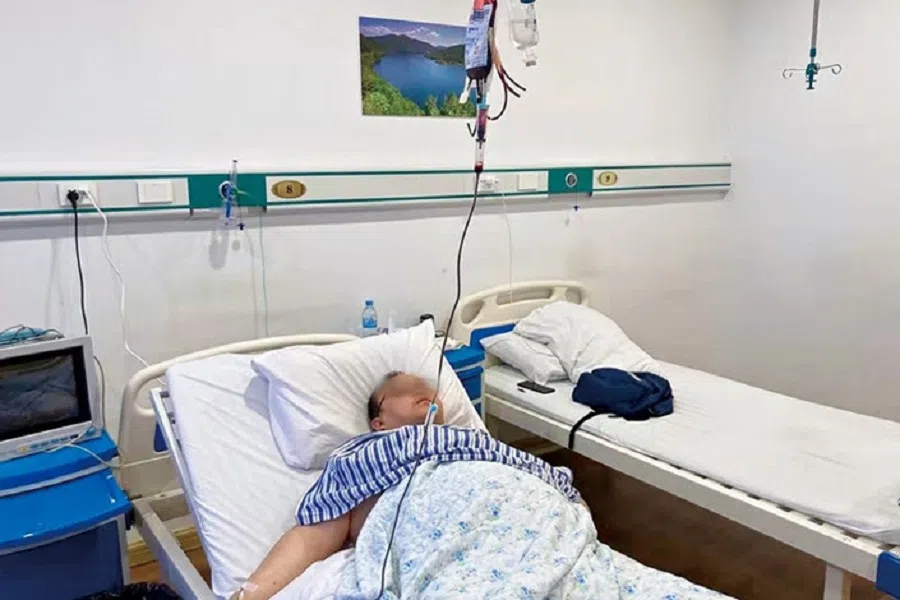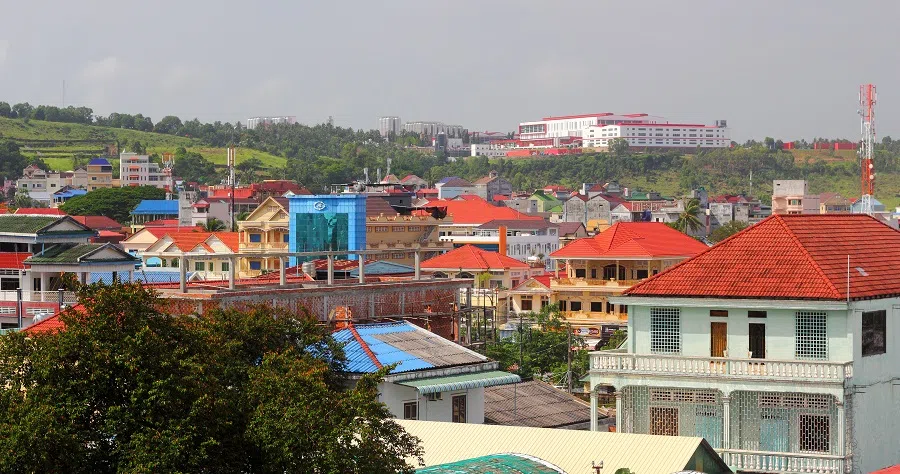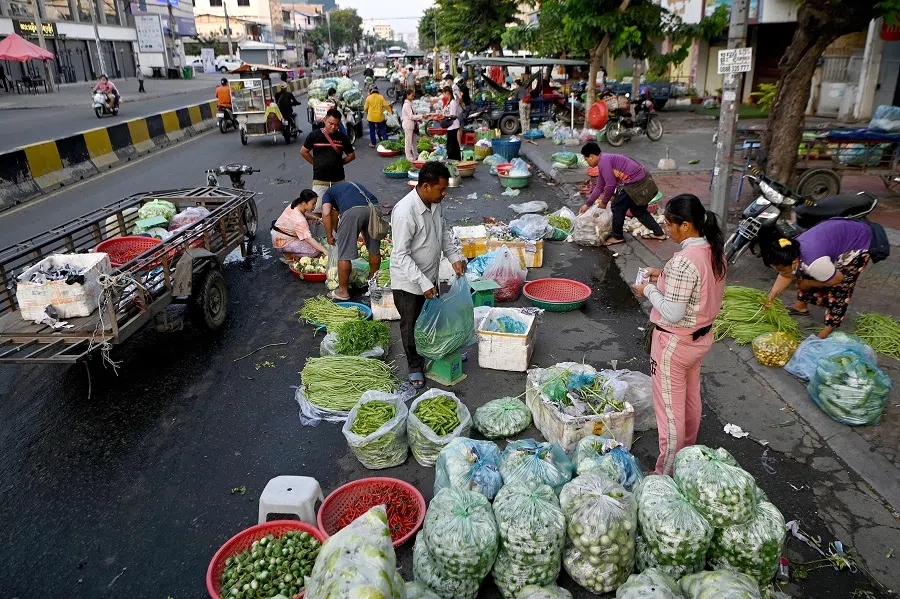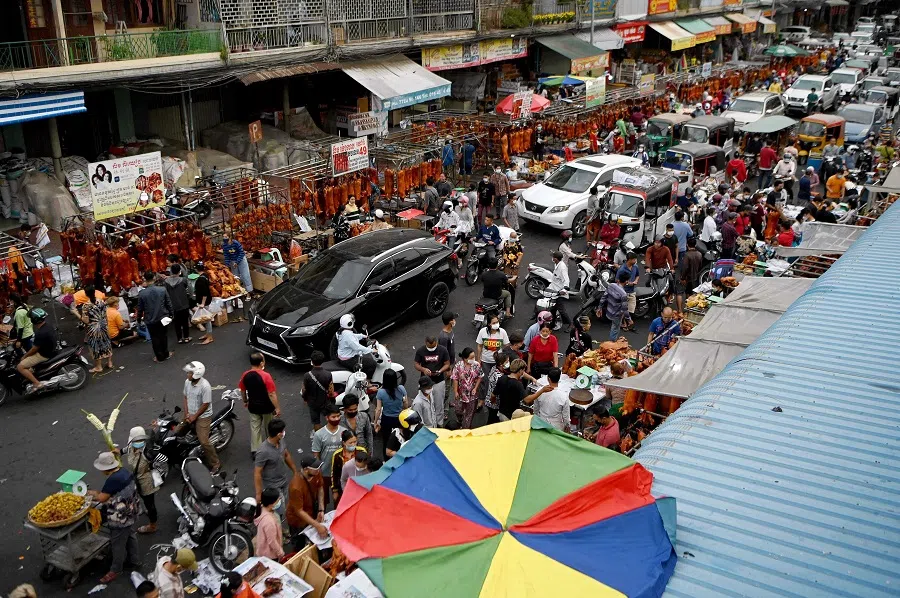Kidnapped and abducted, Chinese nationals are falling victim to cross-border crimes in Cambodia
The case of Li Yayuanlun, a Chinese national who was kidnapped and forced to work as a "blood slave" by a gang of online scammers in Cambodia, sent shock waves through China. While the Cambodian police have questioned the veracity of Li's story, this incident nonetheless reflects the transnational illegal activities and violent crimes involving Chinese nationals in Cambodia.

(By Caixin journalists Qin Jianhang, Sun Haijiao, Wang Kerou, Wang Xintong and Lu Zhenhua)
In recent weeks, a case of a Chinese national who was kidnapped and forced to work as a "blood slave" by a gang of online scammers in Cambodia has shocked China.
In many media reports, Li Yayuanlun, identified as the victim in the case, had 350 millilitres of blood forcibly drawn from him seven times over the six months he was held at the gang's hideout in the Cambodian city of Sihanoukville.
Although Li managed to escape, he was on the brink of death by the time he got treatment, according to a 16 February statement published by the Chinese embassy in the Southeast Asian country, which cited the Bethune Cambodia China First Hospital that admitted him.
Li's story had caused a stir on Chinese social media, with many showing sympathy for his ordeal. However, the credibility of the story came into question on 28 February, when the Cambodian police said in a statement that Li's account was a "pure fabrication", a conclusion they reached after a weeks-long investigation.
Meanwhile, a large number of online investment firms have turned out to be criminal gangs disguised as companies, who have set themselves up on private land to escape government crackdowns.

Cambodian police said that they have detained Li and three others. Caixin has learned that those detained include Chen Baorong, the leader of a local volunteer group who previously told Caixin he helped bring Li to the hospital.
Whether Li's story is true or not, it reflects a real life-threatening issue that Chinese nationals face in Cambodia - the number of criminal cases involving them, including kidnapping and human trafficking, have increased after more gangs of Chinese gambling and telecom fraudsters moved there following China's clampdown at home.
Meanwhile, a large number of online investment firms have turned out to be criminal gangs disguised as companies, who have set themselves up on private land to escape government crackdowns.
Disguised companies
Located in Cambodia's southwestern coastal region, Sihanoukville is the country's largest port city, tourist destination and foreign trade hub. Since the real estate boom in 2016, the city quickly attracted Chinese investors including those who engaged in online gambling and telecom fraud, which also led to a rise in criminal activities such as abduction and extortion of gamblers.
In 2019, a tipping point occurred as China and Cambodia established a joint task force and launched a crackdown on such criminal activities. As of August that year, nearly 1,000 Chinese nationals had been arrested, including 115 suspected of telecom fraud and 335 suspected of participating in illegal online gambling operations. On 1 January 2020, Cambodia imposed an outright ban on online gambling.
In the wake of the crackdown, criminal activity declined sharply. But as the impact of the Covid-19 pandemic began to wane in the country in 2020, many criminal cells moved back to the port city, disguising themselves as private companies in online investment zones.
However, as China tightened border controls and continued its own crackdown on cross-border telecom fraud and illegal gambling, these disguised companies found it increasingly difficult to smuggle in new recruits, so they developed a new strategy to cajole or abduct Chinese nationals in Cambodia into the illegal businesses.

Multiple sources told Caixin that those so-called online investment zones were under closed-off management, meaning they were sealed off from outsiders. Some of the zones were even guarded by military police, which made it difficult for the local police to conduct any search or investigation inside.
Such online investment zones exist elsewhere in Cambodia, including the capital of Phnom Penh.
Ming Xi'an said the gang members tortured him with an electric baton, and he only managed to escape by jumping over the wall from the second floor.
Smuggled into a nightmare
Ming Xi'an, from China's southwestern province of Guizhou, told Caixin that in March 2021, he had been promised a high salary when he was smuggled into the Southeast Asian country and sold to an online investment company in downtown Sihanoukville.
Because he refused to be involved in defrauding his fellow countrymen at the first company, he said that he was sold to another cell, which operated out of two buildings surrounded by two-metre-high walls.
Ming Xi'an said the gang members tortured him with an electric baton, and he only managed to escape by jumping over the wall from the second floor. He injured himself in the fall, but managed to safely get to a hospital.
Unlike Ming Xi'an, Zhang Liya was neither abducted nor smuggled into Cambodia. She said that she was working as an accountant at a factory in Sihanoukville when she got to know someone named Aqiang online.
She told Caixin that her nightmare started on 28 December when she met Aqiang alone for the first time. When she arrived at the meeting place - a temple - in the daytime, she saw that Aqiang had brought another person. The pair abducted her and she was later held by a gang operating out of an online investment zone.
One person threatened her with an electric baton, confiscated her mobile phone and forced her to reveal her password so that they could delete Aqiang's contact information. Zhang believed that the abduction was planned in advance.
Caixin also learned that in mid-December, another Chinese woman, called Xiaolian, had been abducted and sold to the same cell as Zhang Liya. She was held for a 300,000 RMB (US$47,500) ransom, before being sold to a cell in another part of the country. Both women later managed to escape in January.

According to local news reports, the police arrested 11 Chinese suspects involved in a similar criminal ring in Sihanoukville in late January, six of whom were accused of intentional homicide connected to the deaths of two Chinese nationals. The police also rescued three Chinese citizens who were held against their will.
Chen Baorong's involvement
In Zhang Liya's case, she said she finally escaped thanks to Chen, a leader of the Cambodia-China Charity Team.
Chen is a native of Central China's Hubei province and has been doing business in Cambodia for more than 20 years. He started rescuing fellow Chinese countrymen who were held by criminal gangs a few years earlier.
On 8 January, Zhang contacted Chen with the help of her friend, she said. After Zhang provided her passport photo and a statement about how she was kidnapped, Chen quickly reported the case to local police officers he trusted.
The rescue was not easy as the criminals were keeping a close eye on Zhang. A day after she got in touch with Chen, two police officers came to ask if Zhang had called them for assistance. Zhang said that she hadn't because of several concerns, including that she was still in the company of a gang member. Despite her denial, the gang member forced her to record a video saying that she was "not coerced" and "willing to work there" in order to convince the police that there was no problem.
Still, Zhang stayed in touch with Chen. Later, the local police asked her to file a formal complaint at the police station, where she was received by volunteers from Chen's Cambodia-China Charity Team. Afterwards, she was allowed to leave the gang.
Because there are so many people turning to him for help in Cambodia, Chen said he mostly sticks to helping minors or people who have been beaten or injured.
The Cambodian police have accused Li of fabricating the story of his kidnapping. They have detained Li and Chen, according to the police and people familiar with the case.

In December, a Chinese volunteer from his team was kidnapped and beaten by a gang who demanded money for his release.
The volunteer was rescued after a Chinese business association in Cambodia and the Cambodia-China Charity Team reported the case to the General Commissariat of National Police and informed Cambodia-based Chinese government agencies, including the embassy.
Chen said that the volunteer had been lured in by the gang through a false job advertisement, Li Yayuanlun also said that he was lured by a false job ad.
The Cambodian police have accused Li of fabricating the story of his kidnapping. They have detained Li and Chen, according to the police and people familiar with the case.
Caixin has learned that Chen's involvement has aroused great concern among Cambodia's Chinese community, with many believing that he has been deceived by Li Yayuanlun.
In the past, Chen reportedly said that he had once been threatened after helping to rescue a Chinese citizen held at a criminal hideout in Cambodia. He appeared to be worried about his own safety. "If anything happens to me, I hope the [Chinese] state will do justice for me," he said in an interview with the Chinese media.
"I love and hate Cambodia. I love the good people here, but hate the corrupt officials and the bosses of online investment companies," he said.
In November 2021, several Chinese chambers of commerce in the country published a joint statement in which they condemned the perpetrators of all criminal acts, especially violent crimes such as kidnapping.

The Cambodia-China Charity Team said that it has hired a lawyer to defend Chen, and would ensure that he would get a fair shake, according to a 28 February statement. As of 4 March, the volunteer group's official WeChat account had been blocked and no previous statements on the account were available.
The Chinese embassy said that it will continue following the case and cooperate with local authorities to crack down harder on online gambling and telecom fraud in Cambodia.
Ramped-up crackdown
The increasing number of criminal cases in Cambodia in recent years has alarmed Chinese businessmen working in Cambodia. In November 2021, several Chinese chambers of commerce in the country published a joint statement in which they condemned the perpetrators of all criminal acts, especially violent crimes such as kidnapping.
They also promised to work with local police and other law enforcement agencies to strengthen efforts to crack down on all kinds of crimes.
In June last year, a senior official at the Chinese Ministry of Public Security said that China and Cambodia would continue to jointly combat illegal activity, such as telecom fraud and organised smuggling, as well as arresting and repatriating any captured criminals.
For criminals who have become Cambodian citizens, the two countries will continue to push for citizenship to be revoked in cases of fraud, said Wu Jianmin, head of the China-Cambodia Law Enforcement Cooperation Coordination Office, according to a report by the state-run China News Service.
"Cambodia will never be a safe haven for them," Wu said.
(Ming Xi'an, Zhang Liya and Xiaolian in this article are pseudonyms.)
This article was first published by Caixin Global as "In Depth: As More Scammers Find Shelter in Cambodia, More Chinese Become Victims". Caixin Global is one of the most respected sources for macroeconomic, financial and business news and information about China.



![[Video] George Yeo: America’s deep pain — and why China won’t colonise](https://cassette.sphdigital.com.sg/image/thinkchina/15083e45d96c12390bdea6af2daf19fd9fcd875aa44a0f92796f34e3dad561cc)
![[Big read] When the Arctic opens, what happens to Singapore?](https://cassette.sphdigital.com.sg/image/thinkchina/da65edebca34645c711c55e83e9877109b3c53847ebb1305573974651df1d13a)
